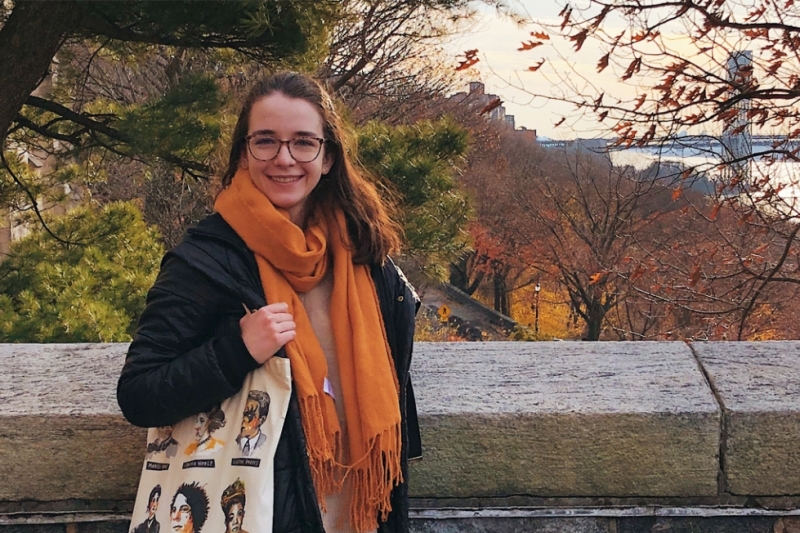With the Brooklyn Defender Service Shannon McGrath ‘23L spent the fall working in the criminal defense practice of the Brooklyn Defender Service.
Shannon McGrath ‘23L is from Mobile, Alabama. She attended Wofford College, where she received a B.A. in English and Government. At W&L Law she is a Note Editor on the Journal of Civil Rights and Social Justice and is the Secretary for the Women Law Students Organization.
Where did you work this fall?
At Brooklyn Defender Services (BDS) in Brooklyn, New York. Specifically, I worked with their Criminal Defense Practice.
How did you secure this externship?
I initially looked into their office, but they did not do full-time externs during the semester. Professor Keri Gould helped me reach out, send over my application materials, and see if they might be willing to take on a full-time extern. After a Zoom interview, the internship coordinator let me know that they would be able to have me full time in the fall.
Describe your work experience and daily schedule.
BDS is on a hybrid work mode that allowed a lot of work to be done at home, so I would do some assignments in my apartment and then I would also attend in-person court proceedings throughout the week. I was paired with three different mentor attorneys that dealt with different kinds of cases that I was able to assist on. One of my mentors focused on misdemeanors, one worked on felonies, and the third was part of the office’s homicide unit. I did various research projects for each of them depending on what questions arose in their cases, and I would assist in drafting motions. I also did work for other BDS attorneys who needed help during the semester. This could range from researching specific legal questions, creating transcripts of audio interviews, or going through large amounts of discovery. Other than this work, I would go to court with my mentors to observe hearings, arraignment shifts, trials, and other court appearances. If they did not have a case on for the day, I would sometimes go to observe other BDS attorneys in court. On these days, I would sit with my mentors and they would tell me about the strategies the attorneys were using and why they were using them. Finally, I was also able to go on the record for a few misdemeanor cases, getting a chance to actively represent clients in court proceedings.
What are some skills you developed this fall?
During my time at BDS I was able to further improve my research and writing skills through the numerous assignments I worked on. I found working on real cases for real people motivated me even more than usual as my research was for more than just a grade—it was actively helping the other attorneys and our clients. Through my observations of court proceedings, I also learned more about techniques to use in hearings and trials. I would sit with other attorneys from BDS who would tell me why attorneys would do certain things and what they thought was the most effective strategy. I was also able to become a bit more confident speaking in court thanks to the times I was able to go on the record and represent clients in some court appearances.
What surprised you about the work you did during your externship?
I think what surprised me the most about my work during the fall was just how much time attorneys spend waiting in court. There were days where I would sit with my mentors for hours as they waited for their case to be called or their client to be produced. I think this is something I had not really heard about in my classes, and it’s something you don’t really understand until you are actually there doing the work.
What was your favorite aspect of your fall experience?
My favorite part of my experience was getting to work on such a wide variety of cases. The ability to work on misdemeanors all the way up to homicides gave me a better idea of the range of issues I could be working on after graduation. It also meant that I got to research a variety of legal questions that I had never really considered up until this point.
Has this experience helped you figure out your post graduate plans, and if so how?
My externship experience reinforced that public defense work is something I want to do after graduation. I thought this after my summer working with the Federal Public Defenders for the Western District of Virginia, but up until that point I had only worked in federal courts. This externship gave me experience working in state court, which gave me a better idea of the work I might be doing in the long run. I really enjoyed my time working in Brooklyn, and now I am even more confident that this is something I hope to do after graduation.
 Shannon McGrath ’23L
Shannon McGrath ’23L
You must be logged in to post a comment.